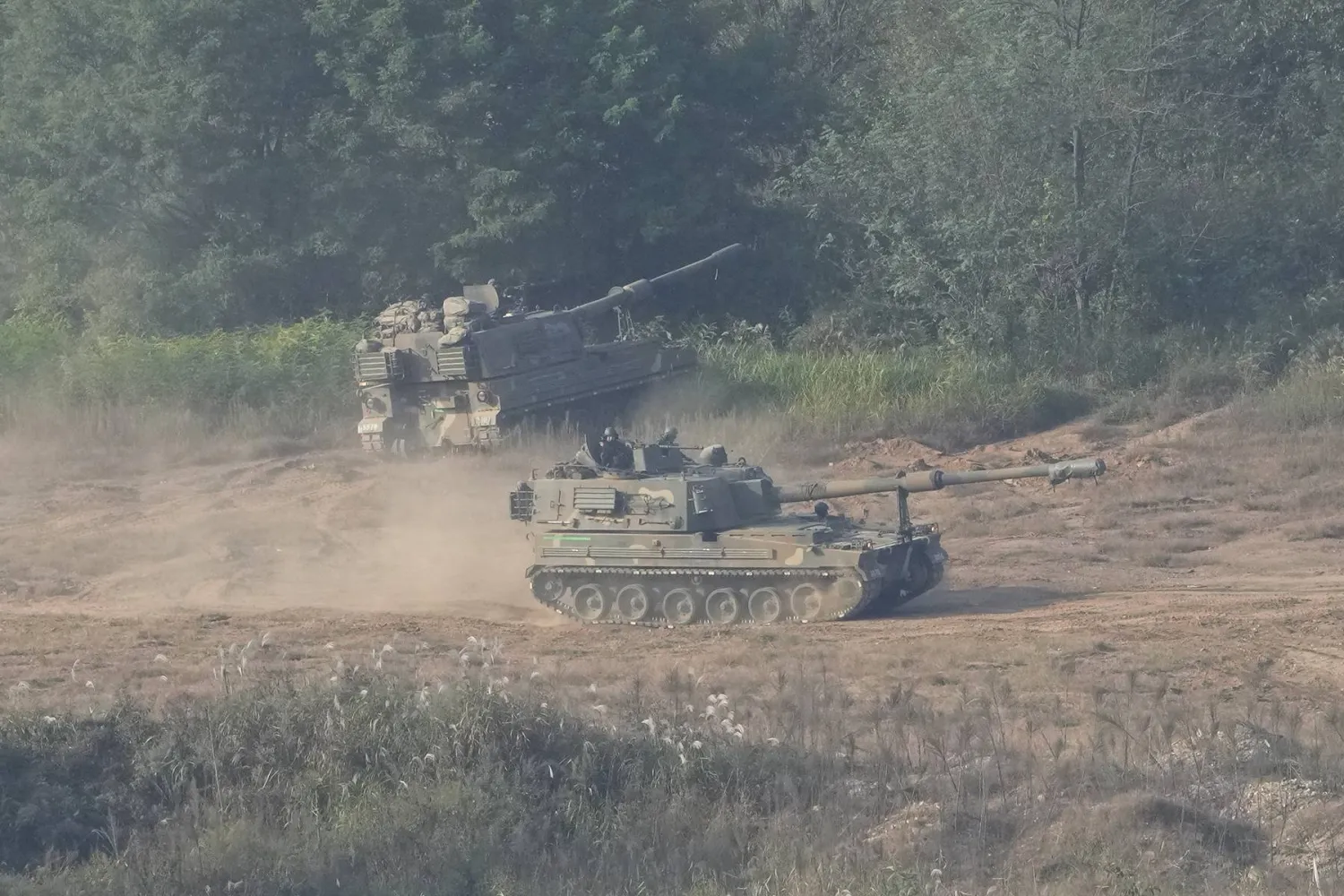North Korea confirmed Thursday that its recently revised constitution defines South Korea as “a hostile state" for the first time after it blew up front-line road and rail links that once connected the country with the South.
The back-to-back developments indicate North Korea is intent on escalating animosities against South Korea, increasing the danger of possible clashes at their tense border areas, though it’s highly unlikely for the North to launch full-scale attacks in the face of more superior US and South Korea forces, The Associated Press reported.
The official Korean Central News Agency said Thursday that its recent demolition of parts of the northern sections of the inter-Korean road and rail links was “an inevitable and legitimate measure taken in keeping with the requirement of the DPRK constitution which clearly defines the ROK as a hostile state.”
DPRK stands for Democratic People's Republic of Korea, the North's official name, while ROK stands for Republic of Korea, the South's formal name.
South Korea’s Unification Ministry condemned North Korea’s constitutional reference to South Korea as a hostile state, calling it “an anti-unification, anti-national act.” It said the South Korean government will sternly respond to any provocations by North Korea and unwaveringly push for a peaceful Korean unification based on the basic principle of freedom and democracy.
North Korea’s rubber-stamp parliament met for two days last week to rewrite the constitution but state media hadn't provided many details about the session. Leader Kim Jong Un had earlier called for the constitutional change at that parliamentary meeting to designate South Korea as the country’s main enemy, remove the goal of a peaceful Korean unification and define North Korea’s sovereign, territorial sphere.
Thursday's KCNA dispatch gave no further details of the new constitution, except the description of South Korea.
“There may still be an internal propaganda review underway about the appropriate way to disclose the constitutional revisions, but this confirmation was expected,” said Ankit Panda, an expert with the Carnegie Endowment for International Peace.
Kim’s order in January to rewrite the constitution caught many foreign experts by surprise because it was seen as eliminating the idea of shared statehood between the war-divided Koreas and breaking away with his predecessors’ long-cherished dreams of peacefully achieving a unified Korea on the North’s terms. In the past months, North Korea has torn down monuments symbolizing rapprochement with South Korea and abolished state agencies handling inter-Korean relations.
Some experts say Kim likely aims to guard against South Korean cultural influence and bolster his family's dynastic rule. Others say Kim wants legal room to use his nuclear weapons against South Korea by making it as a foreign enemy state, not a partner for potential unification which shares a sense of national homogeneity. They say Kim may also want to seek direct dealings with the US in future diplomacy on its nuclear program, not via South Korea.
“North Korea has fallen so far behind the South that any social exchange or financial integration might look like paths to unification by absorption,” said Leif-Eric Easley, professor of international studies at Ewha Womans University in Seoul.
“Pyongyang’s rejection of peaceful Korean unification is thus a strategy for regime survival and maintaining domestic control. This not only bodes ill for diplomacy but could also become an ideology motivating military aggression against Seoul,” Easley said.
KCNA, citing North Korea’s Defense Ministry, reported that North Korea on Tuesday blew up the 60-meter-long sections of two pairs of the roads and railway routes — one pair on the western portion of the inter-Korean border and the other on the eastern side of the border.
Largely built with South Korean money, the road and rail links were once a major symbol of now-dormant inter-Korean reconciliation movements. In the 2000s, the two Koreas reconnected the road and rail routes for the first time since the end of the 1950-53 Korean War, but their operations were halted later as the rivals bickered over North Korea's nuclear ambitions and other issues.
Last week, North Korea said it would permanently block its border with South Korea and build front-line defense structures. South Korean officials said North Korea had been adding anti-tank barriers and laying mines along the border since earlier this year.
Animosities between the Koreas increased in recent days, with North Korea accusing South Korea of flying drones over its capital Pyongyang three times this month and vowing strong military responses if similar incidents happen again. South Korea has refused to confirm whether it sent drones but warned that North Korea will face a regime demise if the safety of South Korean citizens is threatened.
Many observers say North Korea won't likely launch a full-blown war because it knows its military is outgunned by the US and South Korean forces, and that North Korea ultimately aims to use its advancing nuclear program as leverage to wrest sanctions relief from the US. But they say a miscalculation could still lead to border clashes.
Intense outside attention has been on whether the North Korean constitutional change includes new legal, territorial claims around the Koreas' disputed western sea boundary, the site where several deadly skirmishes and bloodsheds happened in the past 25 years.
“South Korea and the United States need not overreact to North Korean moves. The recent drone incident raises the possibility of miscalculation and escalation," Panda, the expert, said.









